The FISH&CHIPS Study: Real-world Study Reveals Significant Reduction in All-cause and Cardiovascular Mortality
Published: 23 October 2023
-
Views:
 4071
4071
-
Likes:
 7
7
-
Views:
 4071
4071
-
Likes:
 7
7
-
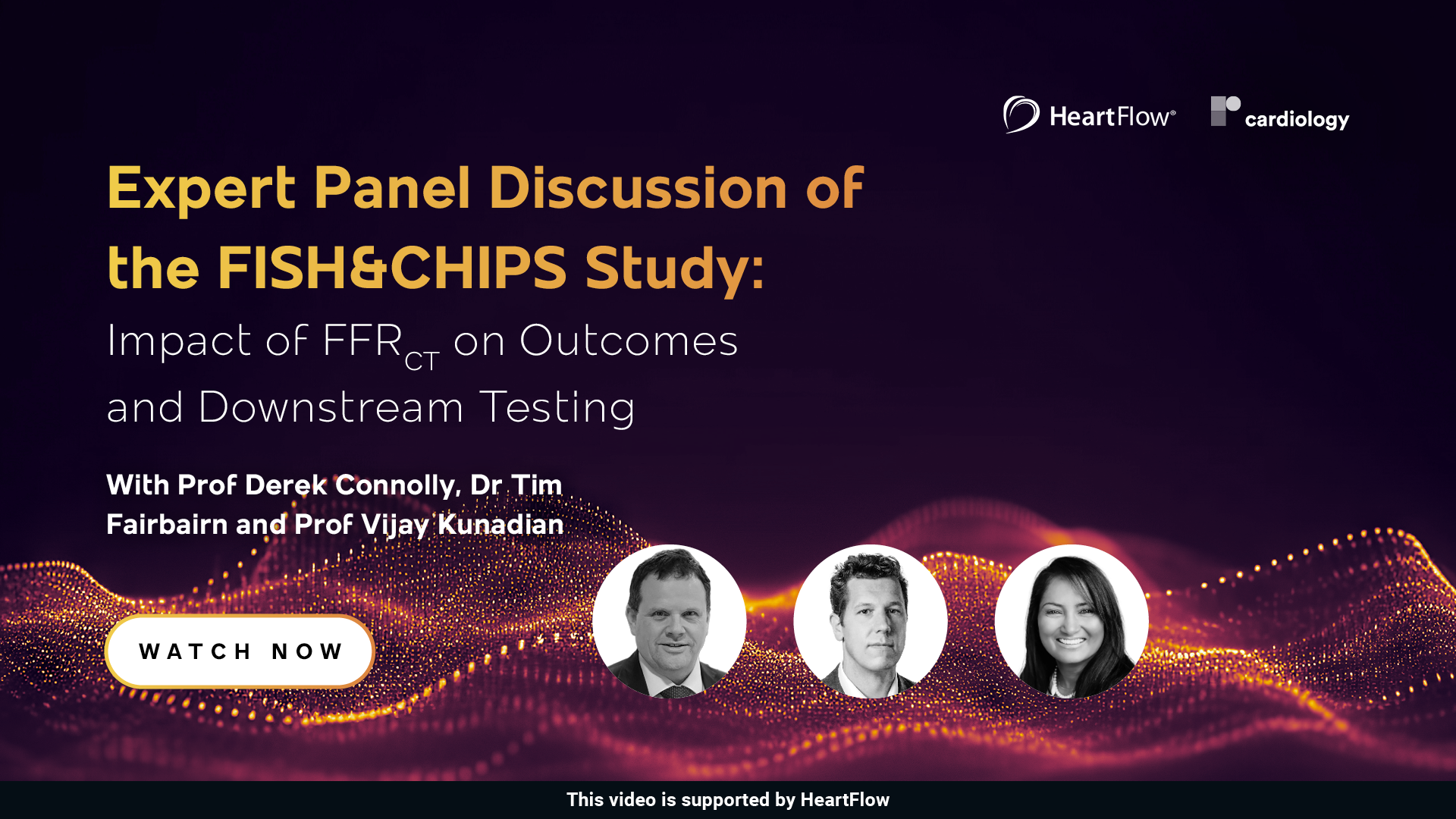 11m 27sPart 1 Expert Panel Discussion of the FISH&CHIPS Study: Impact of Implementing HeartFlow’s FFRCT Analysis for Diagnosis of Coronary Artery Disease on Outcomes and Downstream Testing Derek Connolly, Vijay Kunadian, Timothy Fairbairn
11m 27sPart 1 Expert Panel Discussion of the FISH&CHIPS Study: Impact of Implementing HeartFlow’s FFRCT Analysis for Diagnosis of Coronary Artery Disease on Outcomes and Downstream Testing Derek Connolly, Vijay Kunadian, Timothy Fairbairn
-
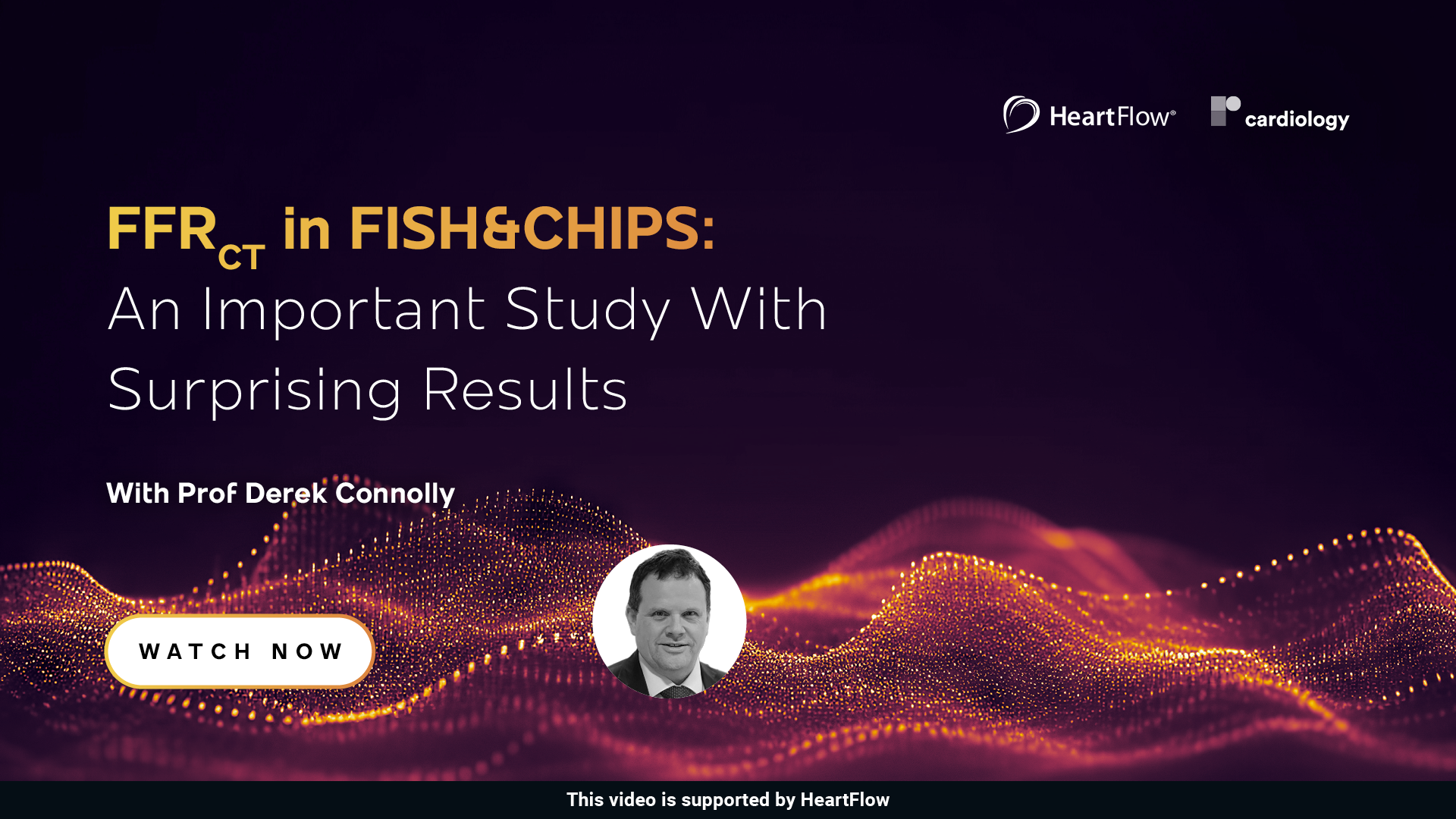 1m 44sPart 2 FFRCT in FISH&CHIPS: An Important Study With Surprising Results Derek Connolly
1m 44sPart 2 FFRCT in FISH&CHIPS: An Important Study With Surprising Results Derek Connolly
Overview
FISH&CHIPS two-year key outcomes associated with availability of FFRCT include:
- A significant 14% relative reduction in cardiovascular mortality and a significant 8% relative reduction in all-cause mortality.
- An increase in cath lab efficiency, driven by a 5% relative reduction in invasive cardiac angiography (ICA) and an 8% relative increase in Percutaneous Coronary Intervention (PCI).
- A 14% relative reduction in additional non-invasive heart testing following CCTA.
- High prognostic value for FFRCT whereby patients with severely abnormal FFRCT values (≤0.50) had a 2x risk of all-cause death and a 3x risk of non-fatal MI compared to patients with normal FFRCT values.
Learn from our esteemed panel’s discussion with the PI of this important study. Delve into the details of the design, analyse the results and understand what led to these impressive benefits for patients and the cath lab.
FISH&CHIPS is real world, multi-centre, retrospective study including more than 90,000 patients assessing at a national level the incremental impact of adding FFRCT to a CCTA-first diagnostic paradigm for evaluating and managing coronary artery disease (CAD). The study was conducted in England and was funded by UK Medical Research Council (MRC).1,2.
In a dynamic interview format, our esteemed panelists will explore the nuances of the FISH&CHIPS study.
This video series is an essential event for cardiologists seeking to learn more about the modern way to diagnose CAD. Don't miss this opportunity to gain valuable insights from our esteemed panel and stay at the forefront of advancements in diagnosis and management of CAD using CCTA and FFRCT.
Recorded on-site at ESC Congress 2023, Amsterdam.
For more information about the FISH&CHIPS study and the HeartFlow FFRCT analysis visit: HeartFlow.com
References:
1. Presented at the European Society of Cardiology congress (ESC) 26 August, 2023 by Dr Timothy Fairbairn.
2. European Heart Journal, Volume 44, October 2023, publication pending.

Learning Objectives
- Learn about the real-world FISH&CHIPS study which highlights the positive impact of implementing HeartFlow’s FFRCT analysis for diagnosis of coronary artery disease
- Learn about significant reduction in all-cause and cardiovascular mortality for CCTA coupled with FFRCT versus CCTA alone
Target Audience
- General Cardiologists
- Interventional Cardiologists
- Radiologists
- Nurses
- Health Care Professionals
More from this programme
Part 1
Expert Panel Discussion of the FISH&CHIPS Study
Chaired by Prof Derek Connolly, (Birmingham City Hospital, UK), this panel of experts focuses their discussion on the FISH&CHIPS study and how HeartFlow FFRCT in stable heart disease and coronary CT helps to improve patient care and societal costs in the NHS system.
Part 2
FFRCT in FISH&CHIPS
This interview with Prof Derek Connolly, (Birmingham City Hospital, UK), focuses on the results of the FISH&CHIPS study and how HeartFlow FFRCT in stable heart disease and coronary CT helps to improve patient care and societal costs in the NHS system.
Prof Connolly reviews the strengths of the study and why the results are so important.
Part 3
The FISH&CHIPS Study
This interview with Prof Vijay Kunadian (Newcastle University, UK) focuses on the results of the FISH&CHIPS study and how HeartFlow FFRCT in stable heart disease and coronary CT helps to improve patient care and societal costs in the NHS system.
Prof Kunadian reviews the strengths of the study and why the results are so important.
Part 4
Details of the FISH&CHIPS Study
This interview with Dr Timothy Fairbairn (Liverpool Heart and Chest Hospital NHS Foundation Trust, UK) focuses on the results of the FISH&CHIPS study and how HeartFlow FFRCT in stable heart disease and coronary CT helps to improve patient care and societal costs in the NHS system. As study PI, Dr Fairbairn provides insights into the nuances of the study and why the results are so impressive.
Part 5
Data From the FISH&CHIPS Study
This interview with Prof Jonathon Leipsic, (University of British Columbia, CA) focuses on the results of the FISH&CHIPS study and how HeartFlow FFRCT in stable heart disease and coronary CT helps to improve patient care and societal costs in the NHS system.
Prof Leipsic provides his perspective on the study and why the results are so important.
Faculty Biographies

Vijay Kunadian
Professor of Interventional Cardiology
Prof Vijay Kunadian is Personal Chair and Professor of Interventional Cardiology at Newcastle University.
Prof Kunadian completed all her cardiology training in the North East of England. She undertook an international academic fellowship in cardiology at the TIMI/PERFUSE Study group, Brigham and Women’s Hospital/Harvard Medical School, Boston MA.
Prof Kunadian has an international reputation in interventional cardiology and cardiovascular research, making her a sought-after and respected speaker at prominent national and international meetings. She has championed diversity in her specialty as a role model; only 5% of interventional cardiologist are female in the UK, <1% are clinical academics.






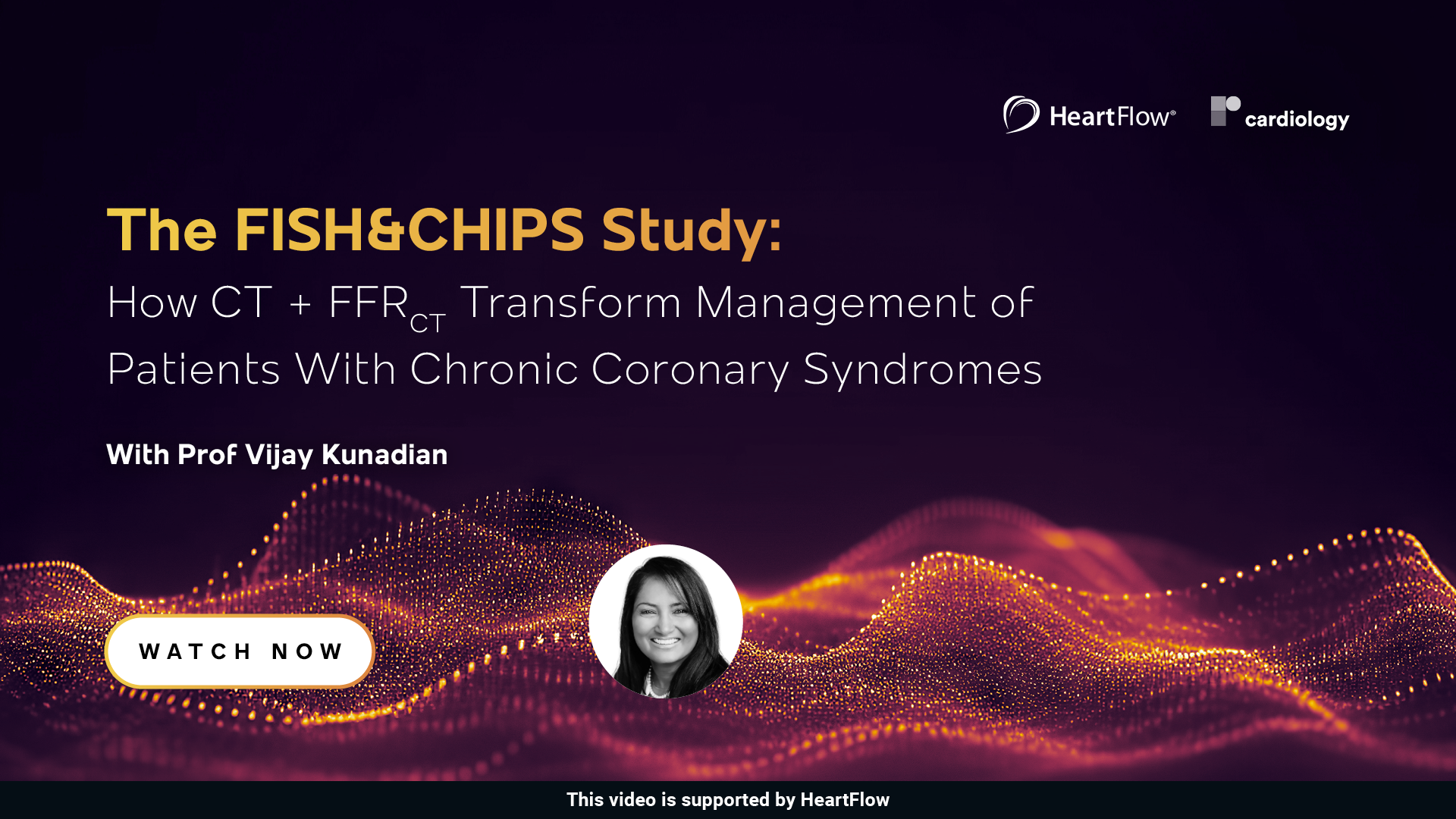
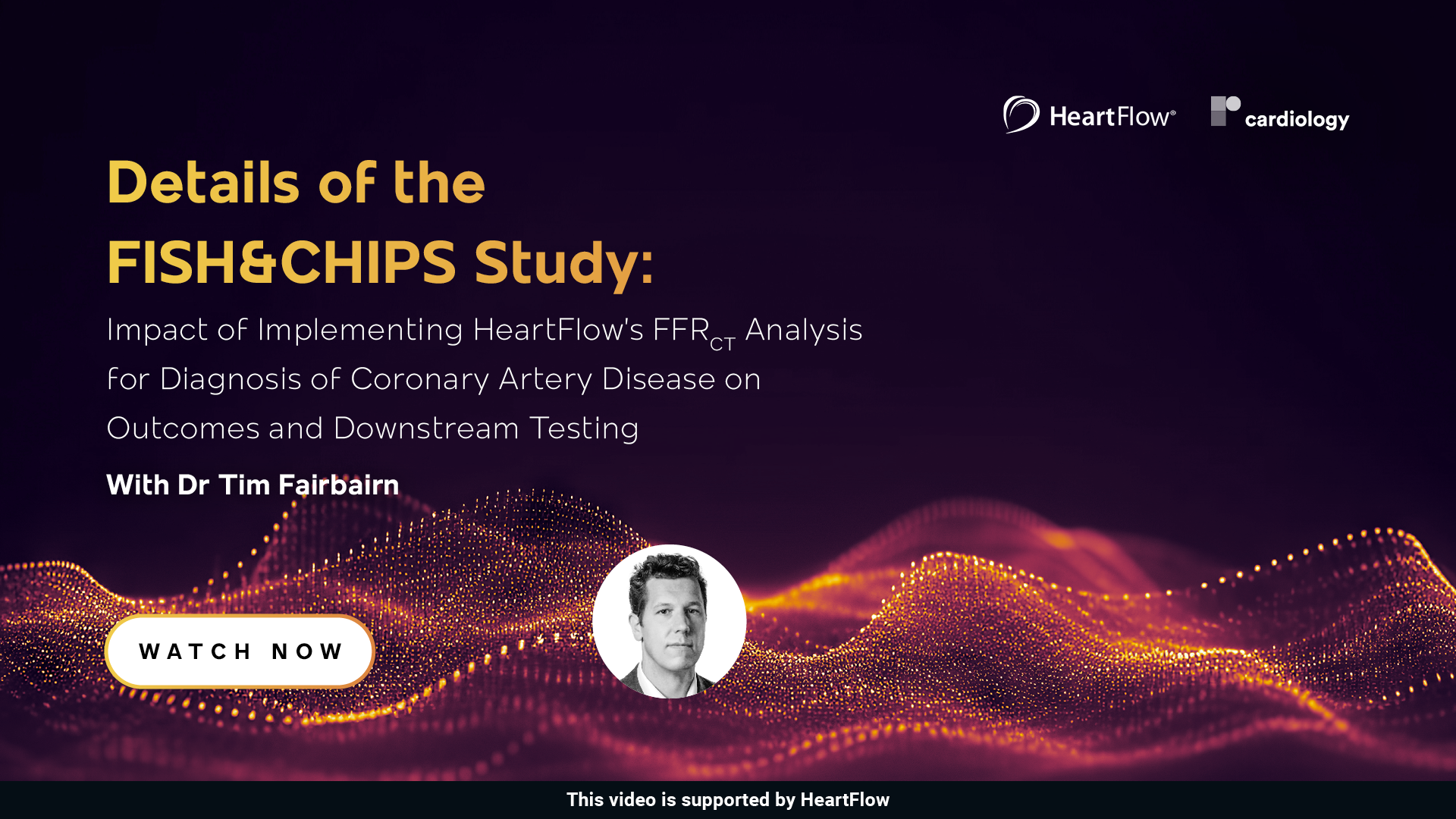
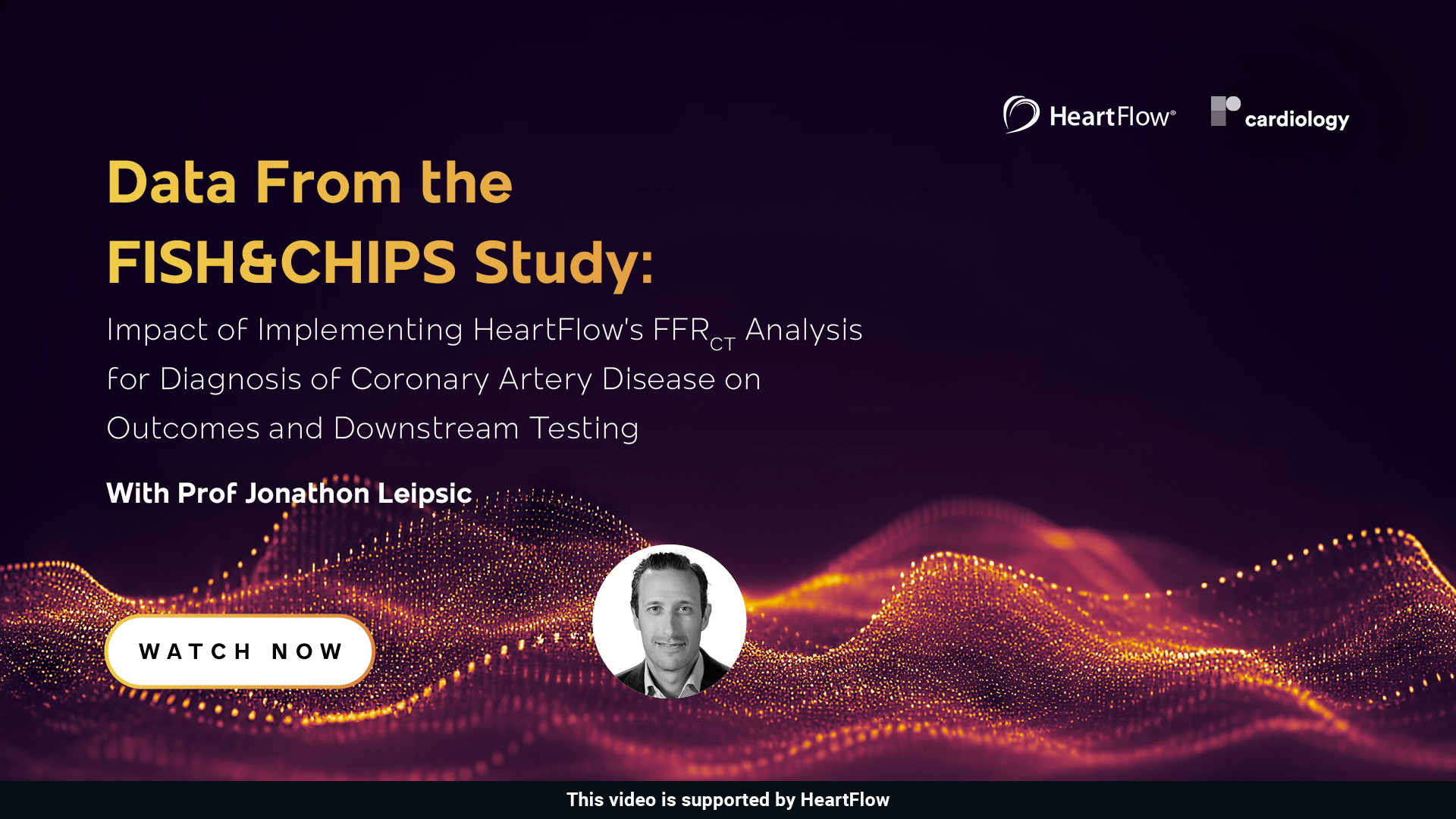
Comments